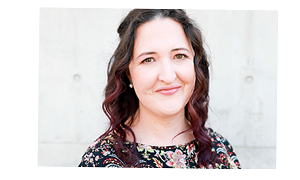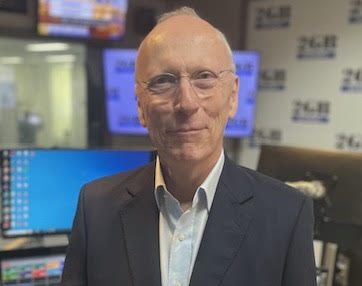Bill Barrington is retiring as General Manager of Nine Radio Syndication at the end of this month after 47 years in the industry.
This year Radioinfo goes across the country and networks to catch up with Managers and CEOs on the state of the industry and their role within it. I’d never personally met Bill before, although I’d received emails from him while working with Macquarie Radio (now Nine).
Barrington’s contribution to radio is immense. I’ll use part of the tribute email from Managing Director of Nine Radio Tom Malone to speak to a portion of his achievements:
“Some of the examples of Nine Radio’s leading innovation under Bill’s leadership include:
- one of the first companies to introduce live content distribution via satellite, using its own proprietary software and systems;
- the first company to introduce digital distribution of commercial and general audio content (Digital Courier) – prior to us it was analogue tape;
- the first company to introduce watermark tracking of audio content on radio (Radio Monitoring);
- established its own media buying service for direct advertising using in-house developed management and booking software; and
- ACRAs for engineering excellence.”
Malone would also say:
“The word legend is easily bandied about, but there’s no doubt Bill is a legend of our industry – well-liked and respected by colleagues and peers alike.”
And in an industry where you are the person who creates such time efficient and industry leading change like what is outlined above, he deserves this legendary status. Additionally, I found him to be a great teacher, the ultimate team player and a wonderful warm human.
Tell me the journey from Inverell to GM of Nine Radio Syndication?
I’ve been very fortunate.
I went from Inverell to Newcastle. I stayed in Newcastle for ten years as announcer, production manager, promotions manager then program director.
I had a conversation with Nigel Milan, CEO of what was 2UE’s syndication company Sky Radio and he said, we’d like you to come and work for us. So my wife, child and I packed up our gear and came back to Sydney. Networking was foreign to me, but I understood it from the receiving end and I had ideas on what could be done. We were a Macquarie affiliate station at both 2HD and 2NZ.
Satellite for media use in Australia was driven by Kerry Packer who needed an efficient distribution system for his network, convincing the Government of the day the technology was essential for television. The result was AUSSAT which was later owned by Optus. Radio was also able to benefit from that initiative and we introduced the BMAC analog satellite system.
There again I was fortunate. We had people like John Conde, Brendan Sheedy, David Padgett and Richard Fleming who could see the future. What was needed to grow the business was a migration from analog to the digital system that we still employ today. It was just good sense to go from analog to digital.
Like so many things in life, if you create an environment within your company to allow for diversity and innovation to take advantage of opportunities, then you are well positioned to grab the initiative.
As an example, I had a phone call from our control room at 2UE one day around 1993-94, we’d had a call from Clemenger advertising agency. They needed to get a commercial to 2AD Armidale same day. They’d heard we had a satellite system, were we able to send it for them? We did it. They loved it. They said, can you do it again? We said, yes, of course.
I was in charge of sales and operations, so I went to the then general manager of Sky Radio, Brendan Sheedy and said I think we’ve got a business opportunity here. And so we built Digital Courier.
Initially, Digital Courier was a digital system via satellite. It was only later that we migrated from satellite to our current internet system, but always it was Digital Courier, all that we changed was the method of delivery.
At this point I asked Bill if he knew he could get the commercial to 2AD when he said yes to the agency.
I knew it could be done.
After that initial success, I had a call from one of the Sydney recording studios who wanted to know if our system could handle multiple sends. I remember having a meeting with just about every recording studio in Sydney. They were using reel to reel tapes to distribute commercials, obviously that’s restrictive; tapes go missing, it’s difficult to resend within a tight time frame; if you find out Friday that the tape for the weekend hasn’t arrived, it’s too late to do anything about it. Whereas when you walk into a digital satellite system, it can be handled instantly. We were able to offer instant digital transmission of audio of any duration, to any radio station in Australia. And we did.
The next thing that came along was Radio Monitoring.
Radio monitoring was a business decision which we drove. The courier business was very price driven which is a spiral to the bottom. In order to be competitive, we needed a unique selling point. The problem was digital distribution had progressed because the internet had improved to such a degree that you could email a track with little difficulty.
The introduction of Radio Monitoring simply said to the customer, if you send your commercial via Digital Courier, it will be watermarked and tracked, enabling you to see if the commercial broadcast was the right key number, at the right time, on the right day on the right station, Digital Courier with Radio Monitoring will give you an audit trail. This gave us a unique selling point. We were the first in Australia to do this for radio.
Bill, was that your greatest achievement, do you think?
I think it was having the common sense to grab an opportunity when it’s presented; these are not necessarily driven by you, but from the marketplace. We’ve all got core abilities. I like to think of myself first and foremost as a marketer. The basic principle behind marketing is very simple. Identify the need in the marketplace and fulfill that need. The trick, of course, is identifying the need, very neatly identified in Abraham Maslow’s hierarchy.
One of the best examples of this is Henry Ford, who identified a need in the community to get from point A to point B faster than a horse, the motor car fulfilled a need. You don’t necessarily want to own a hammer, but what’s needed is a picture on the wall and the hammer’s going to allow you to fulfill that need.
If the goal of any business is survival, then what do you need to do in order to survive? One answer is to identify the changing needs in your marketplace and deliver on those needs. What the customers for Digital Courier needed was to get a commercial speedily and reliably to the marketplace. We were able to do that.
What do you think the trends are for radio and digital?
They remain digital and mobile.
This really is a moment for radio and particularly for News/Talk formats such as 2GB. Radio News is honest and therefore trustworthy. Because radio has a tendency to very neatly compartmentalise news and comment, its news is presented as fact; no agendas or messages incorporated into the presentation. It carries with it honesty and the logical consequence of honesty is trust.
I guess it’s how I’ve always managed Syndication’s relationship with its customer base in regional and metropolitan radio. As a result we’ve had a level of trust in our relationships with our customers. That’s been vital to me.
It feels like you haven’t switched off for 47 years.
No, I haven’t. It’s been 47 wonderful years. I have had the great pleasure and luck of working with some of the absolute greats in our industry, both on and off air. I’ve had the good sense to shut up and listen to them.
What’s next?
My wife and I were thinking about traveling around the world. Then what I’d really like to do is volunteer. If someone thinks I can offer something, if I’m good enough, then I’ll put my hand up.
What advice do you give to a newcomer to the industry?
We work in a great industry that gives the individual extraordinary flexibility and scope, limited only by their desires and their ability to recognise and grab the opportunities when presented.
I saw a wonderful thing once, it was an X-Y graph. The vertical line was the things in life that are bigger than me, the horizontal was further from me. In the top right corner, biggest from me and furthest from me, you’d have something like an international movie, for example, Mission Impossible. Then, if you come right down to the zero point, nearest and living right next to you, guess what you find?
What?
Radio.
It’s very personal. It wakes me up in the morning. If I’m going for a jog or I’m in the car and someone on air says something to interest me, make me laugh or feel sad. Or, hey, there’s an accident at x location, find another way. Local radio makes you feel in touch with your world.
It’s close to me, and by taking that relationship into the mobile digital world the future looks very good.
Radioinfo’s Manager’s Special is a series that we will run throughout 2024. If you’d like to chat, or to nominate your CEO or GM, drop me a line.


